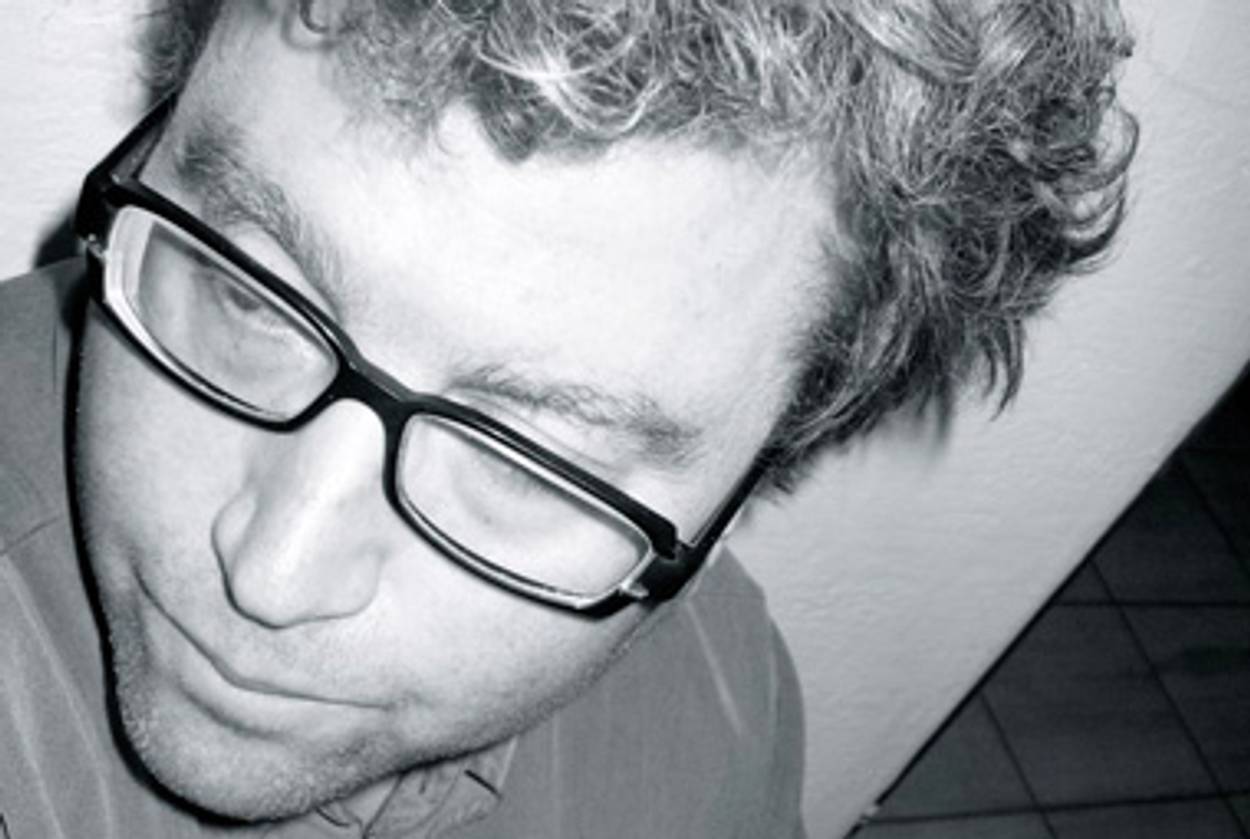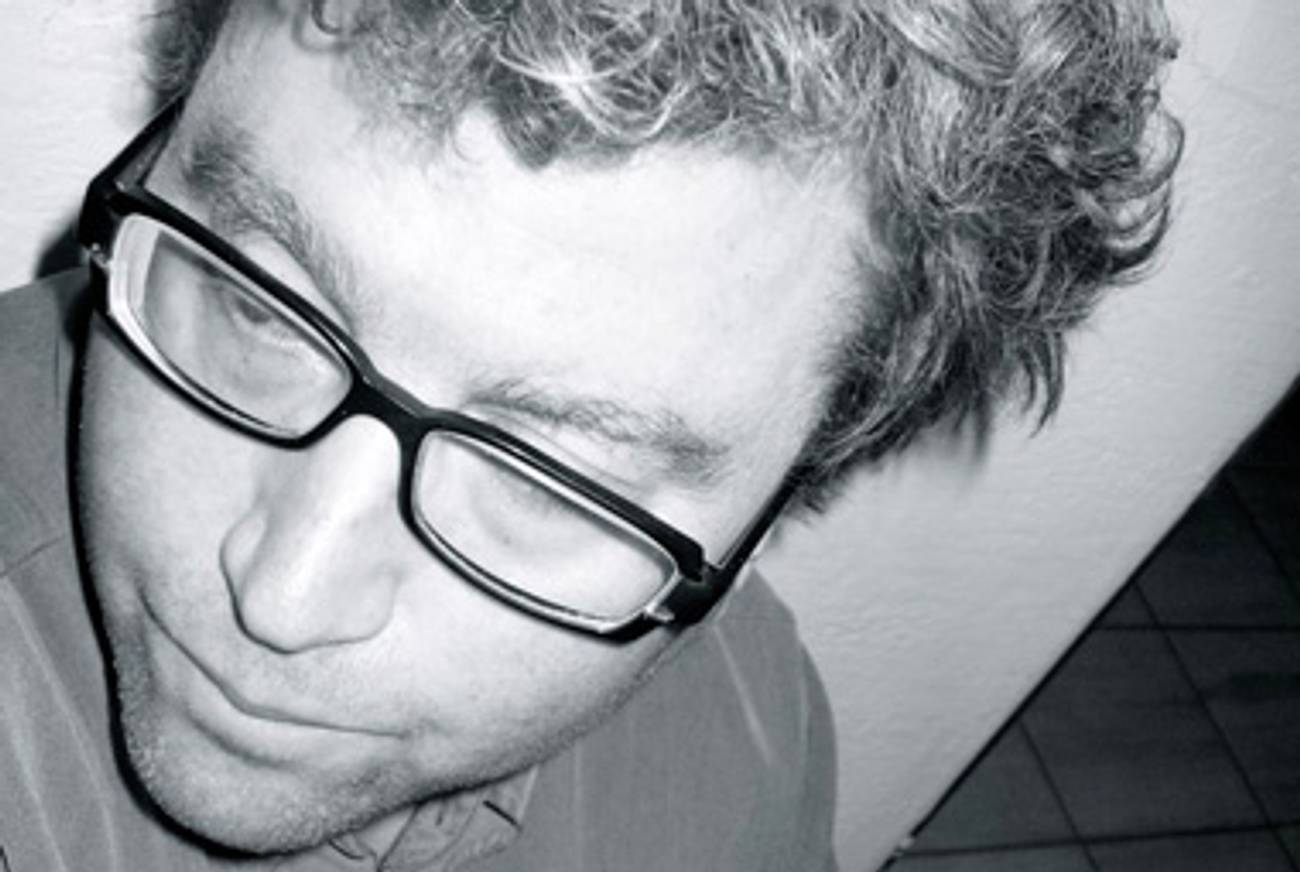Prophet Margin
The poet Joseph Lease waxes prophetic while wondering what prophesy can mean in an age of corporate greed and round-the-clock cable news




At a time when so many people are busy predicting dire futures, it’s increasingly difficult for American poets to wax prophetic. This is something of a surprise. For 200 years, American authors had no trouble thundering away at the backslidings of the age and offering hope for what was yet to come. They did not have to be religious in any standard sense. While their jeremiads drew on the cadences of the prophets, the destinies they promised were most often civic and political. Their sense of sin and redemption had everything to do with national expansiveness, with the spread of the United States across the continent and into the world. Salted with an angry optimism, this tradition flourished well into the late 1960s. These days, though, I’m hard-pressed to think of many mainstream or avant-garde poets who are willing to mine this vein.
Joseph Lease clearly feels the urgency and relevance of prophetic testimony. The title of his third and most recent book, Testify, published in March by Coffee House Press, is an imperative. But who does it come from and toward whom is it addressed? To the poet, of course, and perhaps to us. Does it come from God? That’s a harder call.
Lease starts out by quoting the novelist Marilynne Robinson’s assertion that “the sin most insistently called abhorrent to G-d is the failure of generosity, the neglect of widow and orphan, the oppression of strangers and the poor, the defrauding of the laborer.” Robinson, a liberal Christian, wrote these lines in the wake of welfare reform in the mid-1990s, as an attack on the Christian right. Lease, who is a Jew, redirects its charge at us as Americans, regardless of whether we are Jewish or Christian. But he is justly wary of any claim to speak for the Almighty:
and the leaves roll just like faces, and the faces blow like thieves, and we all keep our explosions, and you taste joy in the night, and the lost boys answer slowly, and the corpse picks up the phone, and we all claim that we’re holy, God won’t leave our dreams alone—
Too many people are too sure that they have a direct line to God. Lease can’t be sure that it’s God on the other end, or that the Creator is the author of his dreams. Who knows where they come from?
Of course, American Jeremiahs don’t have to come with the direct sanction of the Lord of Hosts. Frequently, they don’t. They find their authority elsewhere—in nature, for instance, or in the very essence of democracy. There is no reason for Lease to be any different, but he is. He assumes no authority. His discomfort with a full-fledged prophetic calling comes from the fact that in the end he is no better than anyone else. His “I” doesn’t stand against an intransigent “you.” It falls into the complicit and complicated morass of the American “we.”
Lease’s attempt to find a prophetic place for himself leads to an intense lyricism and a sometimes dizzyingly associative grammar. Testify is really a skein of quotes, clichés, and floating bits of experience. Some of them are obviously personal, some of them collective. At times these bits and pieces come thickly pasted together:
And—as if this phrase had never been abused in our lifetimes—to the ideal of a free society. It’smidnight inmy body,4 a.m. in my body, breading and olives and cherries. Wait, it’s all rotten. How am I ever. A clown explains the war
At other points, they hang loose in the middle of the page as if they were hovering in the middle of the air:
If birds
Tangle
Prayer
I
I’m
While Lease is a very evocative stutterer, his intent is clearly documentary:
“Give in.”
NASDAQ +12.90. Dow close: 10,617.78.
Hey kids, big sexy corporation!
Don’t be a quitter—
According to Lease, our lives are made up of shopworn words and private sensations. We move through an atmosphere of stock quotes, policy debates, breaded olives, and wood smoke.
In the face of this, Lease poses the question that lies at the heart of almost any philosophy worth the name—“What is the good life?” The ancient Greeks defined it in terms of contemplative moderation; the Prophets, as righteousness; modern Americans, as individual fulfillment and physical comfort. A latter-day prophet might pick one of these answers and stick to it. Lease does not. He lives between them.
His calling is ambiguous. Isaiah’s mouth gets touched with burning coal. Lease, caught in his daily concerns, gets something less than that. He’s given nothing more than a little green light:
I have to teach. I have to run, eat less junk. Oh CNN. What start or color. There’s a fist of meat in my solar plexus and green light in my mouth and little chips of dream flake off my skin.
There is not much room for vision when your heart is described as a “fist of meat.” Testify yearns for the spirit, to be sure, but finds itself caught in the brute matter of the present day.
Testify’s beauties come from the tentativeness of its tone. Here’s how the book ends:
pro-business policy solutions solve your child’s sleep problems book-birds shining leaves hang fat grapes so mist deep kiss mouthful of wind like wet peonies his head is winter are you a worker health insurance health insurance health step into the water and step into the road step into the water and step into the sky health insurance greed health insurance greed before you know it you’re lying in a pool of blood
I hear that everywhere I go
That pool of blood is both a sign of guilt and perhaps even an apocalyptic hint, but no more. Lease offers no prescriptions and suffers no proposals. There is anger in Testify, and there is love. But unlike Whitman and Thoreau, Lease offers no whiff of redemption, and unlike Jeremiah before them, no consolation.
Lease might be on to something. Perhaps we have too many aspiring prophets already. Lease is suggesting that discomfort—not certainty—might provide enough sanction for a prophetic stance today. Such a stance is confrontational but not in the regular way. It needs to say something different, something that you do not hear everywhere you go. In a world of 24/seven coverage, Testify is trying to do just that.
David Kaufmann teaches literature at George Mason University.
David Kaufmann teaches literature at George Mason University.